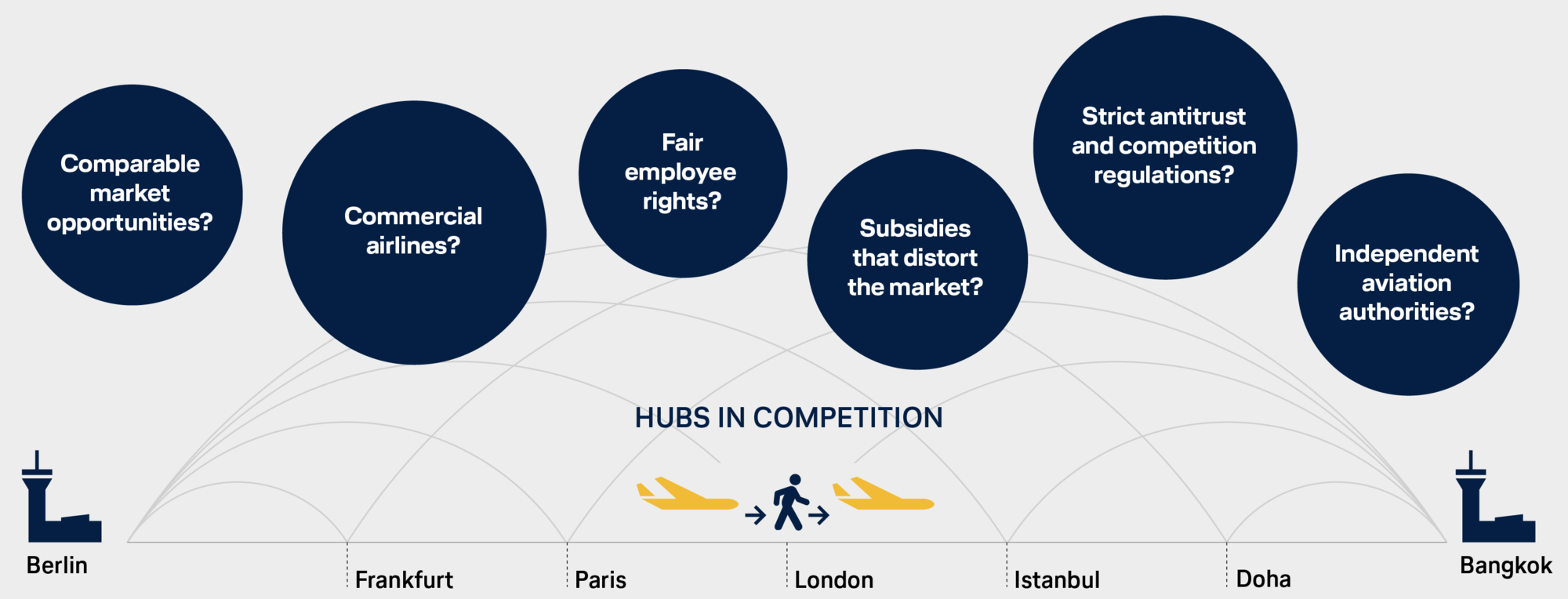Aviation agreement
The More open the market, the more important the rules
According to a study conducted by the OECD, the German aviation market is among the most liberal in the world. Around 160 airlines from all continents fly to German airports. The basis for this is the EU internal market and aviation agreements negotiated by the Federal Ministry of Transport or the EU Commission. These internationally binding contracts have been safeguarding the steadily increasing diversity of connections worldwide for decades – and are irreplaceable when it comes to fair competition.
Competition on a level playing field?
Take the example of Berlin – Bangkok: Travellers can choose between numerous connections on this route. For example, flights that go via Frankfurt, Paris and London compete directly with flights via Istanbul or Doha. Answers to important questions regarding fair competition are very different depending on the hub in question. Future aviation agreements should ensure fair competition rules and social standards.
